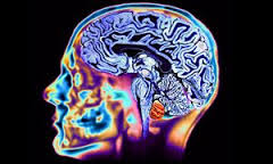
|
Aging is something we all must face up to, and some people look forward to it, and others do not. Getting older is perhaps not the worry, but losing bodily or mental capacity is. Bodily worries can possibly be overcome by good diet and exercise and most people are fortunately aware of this continuing with both well into old age. Mental health, on the other hand, is something few people know how to address, but there is a remarkable way to keep the brain healthy. Some people do crosswords and others Sudoku, and these both can stimulate the brain, and yet they come a close second to the ultimate brain exercise and always will. The best challenge you can set for your brain as you get older is to learn or speak another language. Understanding language, even your native language, is one of the most difficult things for your brain to achieve. Adding a second language to this is, a brand new language, is the equivalent of an Olympic event for your brain. Studies around the world, and in particular Edinburgh University, have proven that speaking a second language has positive effects on the brain. Research conducted between 2008 and 2010 with some participants first tested in the late 1940s showed improved cognitive abilities in older people who spoke a second language. Cognitive abilities are the brain-based skills that are needed for humans to undertake anything form simple tasks to the most complex. By using MRI technology, scientists have collected evidence to prove that parts of the brain actually grow when a person studies a language intensively over a longer period of time. Strangely enough, no brain growth was detected in the control group that had not been learning a language although they had been studying just as intensively. How we learn, remember, solve problems and even pay attention are all improved with a second language. Knowing a second language and learning a second language keeps the brain extremely active. Even if a person has been speaking the language from a young age, the exercise this creates for the brain is considerable. People often think that those who speak a second language are more clever, and they would not be entirely wrong. Because speaking a second language works the brain harder, the brain absorbs more and retains more. Extending this into later years has shown that people with a second language have brains that seem to age slower or better and they are more intelligent as a result.  There are believed to be links between second language acquisition and aging ailments, such as dementia and even Alzheimer’s. Because the brain must juggle and shuffle things around can switch between languages, this activity keeps the brain healthy. Memory and concentration levels remain high, and can even increase with a second language later in life. It makes sense that overall communication ability is improved and the perception of higher intelligence is indeed a definite and proven increase. With a second language, older people need never be bored, as the language not only improves focus and attention spans but also aids creativity. For a long and healthy life, with all your cognitive abilities intact, a second language is the answer. It is never too late to learn, even at an older age the challenge a language brings is very good for mental and physical health.
0 Comments
Leave a Reply. |
AboutThese blogs are about learning a foreign language and how utilising that skill can help to keep your mind active and assist with your cognitive function. Archives
July 2024
Categories |



 RSS Feed
RSS Feed

